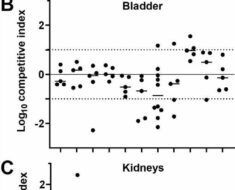
New research from the University of South Australia shows that golfers have a higher risk of skin cancer when compared to the general population.
Conducted with global partners, the study shows that one in four golfers had received a skin cancer diagnosis, indicating 2.4 times greater risk of the disease. The work is published in the journal BMJ Open Sport & Exercise Medicine.
The study is the first to explore the prevalence of skin cancers among an Australian golfing population.
Lead researcher, Dr. Brad Stenner says the findings highlight the importance of being sun smart on the green.
“Playing golf regularly has a range of excellent health benefits—from helping you stay fit and active, to keeping you in touch with friends,” Dr. Stenner says.
“For example, if you walk an average golf course, you’re walking at least five to seven kilometers every game, often more add a bag of golf clubs and maybe two to three rounds a week, and you can see just how good golf is for your endurance, muscle tone and well-being.
“While there are clear health benefits of engaging in golf, this study explored the risks of playing golf as golfers tend to play for four or more hours in the sun, using various sun protection strategies.
“We found that that 27% of golfers—or one in four—had been diagnosed with skin cancer, as compared with 7% of the general population.
“So, while sun smart campaigns do exist and are promoted in Australia (especially in summer), it seems they may be missing the mark when it comes to golfers.”
Skin cancer accounts for the largest number of cancers diagnosed in Australia each year. Every year, skin cancers account for around 80% of all newly diagnosed cancers in Australia.
One in every three diagnosed cancers are skin related, with between two and three million non-melanoma skin cancers and 132,000 melanoma skin cancers occurring globally each year.
“This study confirms that golfers have an elevated risk of skin cancer. Knowing that, players should more actively strive to protect themselves,” Dr. Stenner says.
“My advice is: before you go out and play golf make sure you put on some high SPF protective sunscreen, wear a broad brimmed hat and some sort of sleeve or arm protection to ensure you’ve got the maximum coverage, and don’t forget to reapply sunscreen as you go. Once you have that you’re all set to tee off.”
More information:
Brad Stenner et al, Golf participants in Australia have a higher lifetime prevalence of skin cancer compared with the general population, BMJ Open Sport & Exercise Medicine (2023). DOI: 10.1136/bmjsem-2023-001597
Journal information:
BMJ Open Sport & Exercise Medicine
Source: Read Full Article





